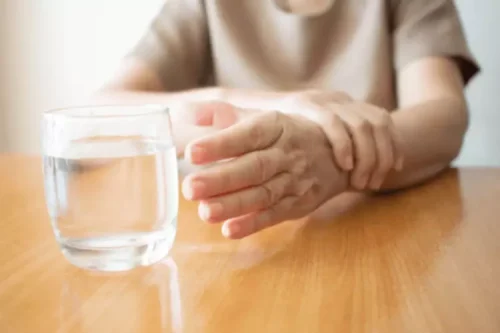
Creating a healthy home environment and prioritizing self-care among family members also contributes significantly to resilience and supports a positive recovery process. If you or a loved one is struggling with addiction, we’re here to support you every step of the way. Family therapy helps uncover and address these challenges, guiding the family toward healthier ways of interacting and supporting one another.

Recognizing opiate withdrawal symptoms in loved ones

Open communication and healthy boundaries allow the recovering individual to transition back into everyday life comfortably. Family members actively participating in the recovery process helps create a nurturing atmosphere, reinforcing commitment to sobriety. Recovery from addiction is a journey that would be helped by involving the entire family unit. The family’s role can be pivotal, no matter drug addiction the kind of addiction and recovery on the horizon.

The Addiction Treatment Admissions Process: What to Expect at Swift River
CBT has been proven effective for recovering addicts of all kinds, and is used to strengthen a patient’s own self-awareness and ability to self-regulate. CBT allows individuals to monitor their own emotional state, become more adept at communicating with others, and manage stress without needing to engage in substance abuse. Addiction’s impact on families is profound and multifaceted, necessitating a comprehensive approach to recovery that involves the whole family. By understanding their role and leveraging available resources, families can begin the journey towards healing, fostering a supportive environment for recovery, and ultimately paving the way for a healthier future together. It helps create a healthier home environment, recognized as crucial for sustaining recovery efforts.
Transitioning to healthy roles
Children growing up in these families are also at a higher risk of developing a substance use disorder themselves (Zimić & Jukić, 2012; Hawkins et al., 1992). At Swift River, our family family support in addiction recovery therapy program integrates with our overall treatment approach to provide comprehensive support for recovery. Our experienced team understands the challenges families face and provides compassionate, effective support throughout the recovery journey. Understanding addiction as a disease helps family members develop greater empathy and more effective support strategies.

In such cases, parents have to be mindful of being an example of strength for children. Strong support and connection can help encourage their teens to get clean and possibly reduce the rate of relapse. Family members may feel frustration as the adolescent skips school, gets poor grades, or befriends other teens who abuse drugs. Parents often feel anxiety over their child’s whereabouts and sudden changes in their social circles. In response, primary guardian and parental figures demonstrate a wide variety of behaviors and attitudes. Some may tune in and out, being inconsistently emotionally available for their child.
- Groups such as Al-Anon and Nar-Anon offer a space to share experiences, gain insights, and find support.
- Recent surveys conducted in outpatient (Ryan-Pettes et al., 2019) and justice settings (Folk et al., 2020) found that most caregivers desired ongoing DTC support on parenting during aftercare.
- Therapists can provide tools and strategies to navigate the challenges of addiction, helping families heal and communicate more effectively.
You may also have developed some unhealthy ways of adjusting to the changes addiction has created in your life. Evoke’s family integration therapy program specifically supports repairing relationships by guiding families through this delicate process. With professional guidance, patients and their loved ones can begin to heal the wounds of addiction together.
This blog talks about different ways people fight https://ecosoberhouse.com/ addiction in different parts of the world. Signs may include withdrawal from social activities, changes in mood or behavior, increased secrecy, or returning to old habits.
- Many of the groups mentioned above, especially Codependents Anonymous, can help you learn the difference between helping and enabling and provide tips on creating healthy boundaries.
- Equally frustrating is the hopelessness loved ones feel in response to substance abuse.
- Whether you’re seeking help for yourself or a loved one, our team at Resolute Recovery is ready to guide you through the process and help you find the program that best suits your needs.
- Family members often experience a whirlwind of emotions when dealing with a loved one’s addiction.
- Our family therapy program provides a structured environment for beginning the trust-rebuilding process.
- The role of the family is important at this stage, as they can intervene into their young loved one’s life to discourage drug use.
Each can face challenges that may need to be addressed so that recovery can continue. After seeing that the family is stable enough, underlying feelings that may be triggers or causes of past and current drinking recurrences might then be investigated. They’re the people who may be the most likely to stick up for you, and who may have seen you through the best and worst of times. Enter your phone number below to receive a free and confidential call from a treatment provider.

Recent Comments